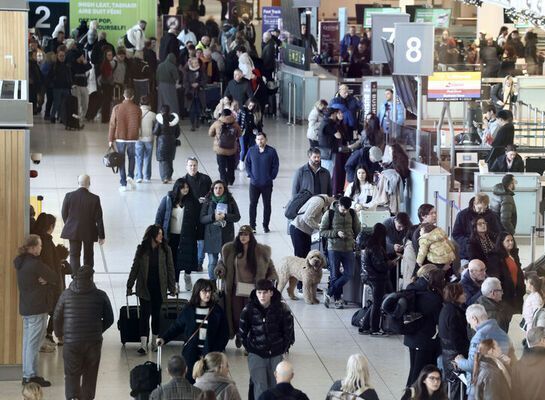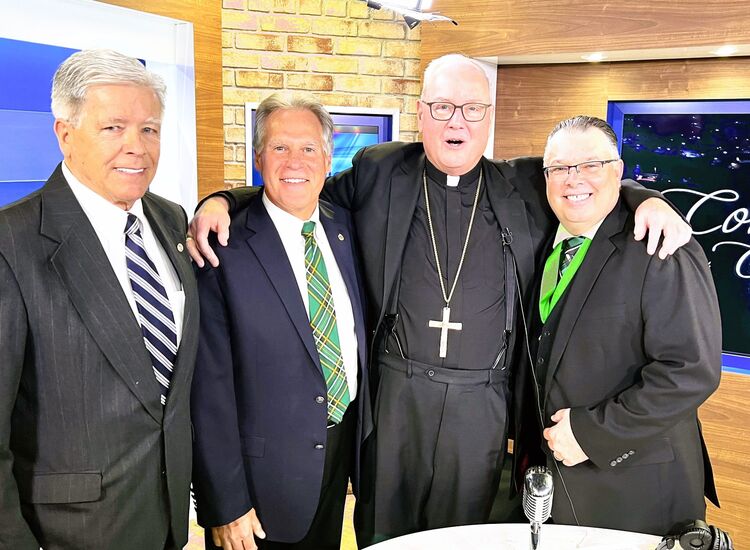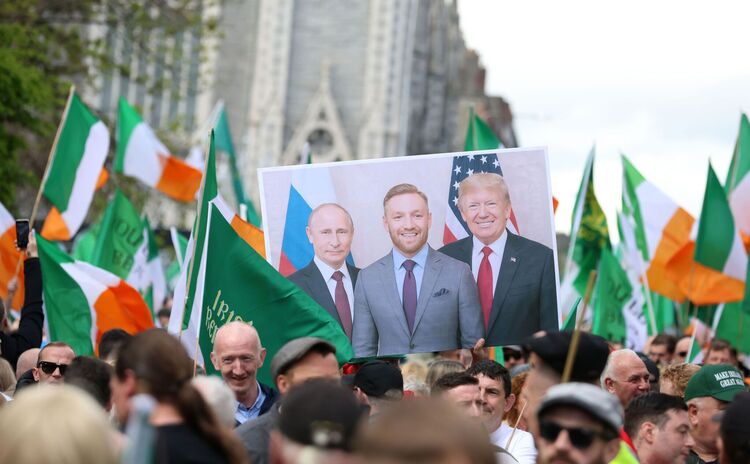Book Review / By Peter M. Walsh
There are bar stories and then there are “bar stories.” Once they are started, the facts erode and the myth explodes. Some become the lexicon of neighborhood folklore and some spread like pollen to new geography and flower vines in new climes. The later vintage usually bears no resemblance to the first planting and takes on new color and taste, with just the suggestion of its original essence. Bar stories often disappear in our world of instant daily news. When they do spill out, it’s in the accentuations of well liquored tongues that entertain, offering the listener to react with laughter, pause or the universal “wow!”
But “The Greatest Beer Run Ever,” which has been given the book treatment by Chick Donohue & J.T. Molloy, has stood up to time and fact. The story needs no invention for it is uplifting, exciting and so simple in its plot. It is about the power of love and friendship surrounded by the madness of war. Its heroes are the everyman neighbors that solve problems by hard work and a reverence for the country that took in their desperate families and ancestors. The Irish of Inwood, and their children wherever they are, still say “Thank you, America!”
Rarely does a bar story get translated into the written word and succeed in filling the reader with the verve and atmosphere of bar stool poetry. New York City folklore is kept alive in the taverns and bars that anchor our neighborhoods and give some continuity to the arrival of the new and the passing of the old. What doo wop is to rock n’ roll, the bar story is to our urban literature. It echoes down the streets, rumbles from the subways, sings from the street corners and remains in the hallways of our minds.
J.T. Molloy has translated the tale of Chickie Donohue with all the nuance and verve of a local saloon. You can smell the beer, feel the shot glass and hear the hum of the neon dancing with the juke, lending atmosphere and never disturbing the honesty and nobility of our heroes.
Inwood, where our story begins, is a very tribal area for the Irish in New York City. Bullshit doesn’t travel far unless there’s a good punch-line. If you’re caught in a lie, you better move. And if you are tagged with a nickname, you better like it because it’s yours for life. The old are proud of nuns and priest, the young love sports and a good fight and everyone is proud of the smart and successful. Jealousy in Inwood is for the weak.
It was church, school and the streets. Junkies were ostracized and policing was a family affair. Inwood guys didn’t back down - smart or strong, big or small, they had guile and street smarts. Downtown Manhattan was 15 minutes away on the FDR or a subway token to the big dance. And they embraced the city as their rightful inheritance. But they were home and warm in the scores of bars, pubs, taverns that dotted the streets of Northern Manhattan. This is where they celebrated holidays, engagements, reunions and sometimes even death.
Our story takes shape at Doc Fiddlers, a bar and Northern Manhattan outpost located on Sherman Avenue. It’s 1967 and George Lynch is the bartender and custodian of dry humor and “don’t break the house rules or you’re banned for life.” He was also a military history devotee and nicknamed “The Colonel.” Returning Vietnam Vets drank on the arm at Fiddlers and found an information-packed place for talk, jobs and contacts. Twenty seven young men from Inwood had already died in Viet Nam. With protest against the war taking place across the country and GIs’ called murderers, the Colonel exclaimed to the bar faithful, including Chickie Donohue sitting in a corner that “somebody ought to go over to ‘Nam, track down our boys from the neighborhood and bring them some beer and encouragement”. Well, George Lynch did not have a Z-Card (a merchant marine passport to work the ships) to travel to Vietnam, but Chickie Donohue did! And soon after began Chickie’s odyssey on board an ammo ship, The Drake Victor to a place where friends and foes search, wait and war. The story as told to J.T. Molloy is seamless as to where the words become dripping drops of ink in a fast-paced steeplechase run from the streets of New York City to the Qui Nho Harbor, Long Binh, downtown Saigon and up to the Central Highlands of Viet Nam.
Like the constant rover of Irish song, Chickie Donohue has traveled around. He has been a teamster, sandhog, Harvard man, Marine and mariner, but rather than travel from town to town he sails the listener on this herculean journey and mission of fidelity. We are introduced to his friends Chuckles, the Minogues, Joey McFadden and search for Tom Collins, Rick Duggan, Kevin Mcloone and Bobby Pappas. When the Tet offensive explodes into the story we walk, and sometimes run, with him in the alleys of danger and meet expats, South Vietnamese and military bureaucracy. He has us hitch rides on planes, ‘copters, jeeps, trucks and bicycle taxis. Chick has more moves than a cat in a greasy kitchen. If you like travel books you get your money’s worth, but this is more – it’s Donohue’s song and Molloy’s pen taking the oral tradition and making it part of beautifully written history. On his back and in his heart he has carried a chalice (even though a bag of beer) of recognition to bestow on his Inwood tribe. Chick Donohue is someone you would want to share a beer with or even a foxhole. Now you can, by reading the greatest book ever about “The Greatest Beer Run Ever.”








